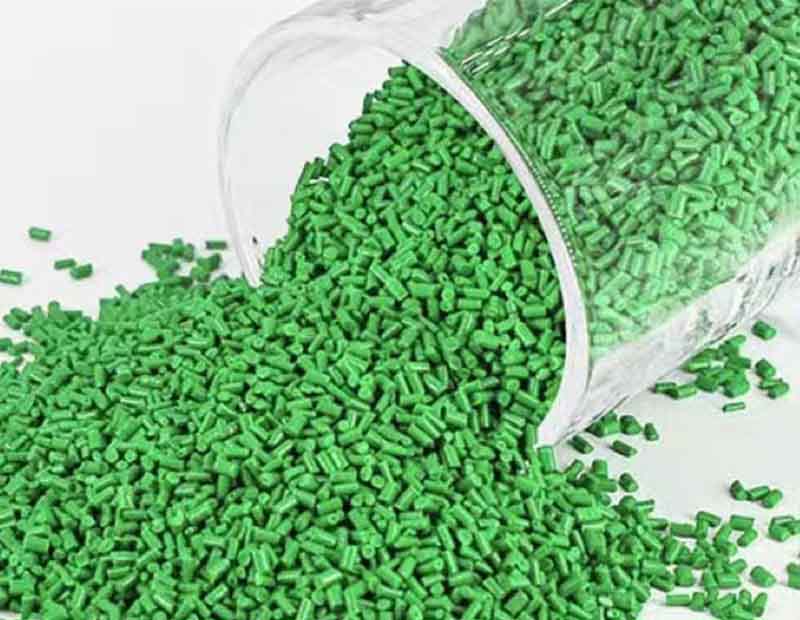As industries increasingly prioritize environmental responsibility, materials like PPSU (Polyphenylsulfone) are being scrutinized for their sustainability. While PPSU is renowned for its exceptional performance in high-demand applications, understanding its environmental impact, recyclability, and the strides toward sustainable solutions is crucial for future adoption.

Understanding PPSU and Its Environmental Footprint
PPSU is a high-performance thermoplastic widely used in industries like medical, aerospace, and food-grade applications. Its durability, chemical resistance, and ability to withstand extreme temperatures make it indispensable in applications where longevity and reliability are critical.
However, as a petroleum-based material, PPSU Raw Materials contribute to the environmental challenges associated with fossil fuel extraction and processing. Unlike natural or biodegradable materials, PPSU takes considerable time to break down in landfills.
Recyclability of Material PPSU
Despite its synthetic origins, PPSU offers several opportunities for recycling and reuse:
Mechanical Recycling:
PPSU can be mechanically recycled by grinding used parts into pellets and reprocessing them for non-critical applications. This approach reduces waste and extends the material's lifecycle.
Chemical Recycling:
Efforts are underway to chemically break down PPSU into its monomers or simpler compounds, allowing for the creation of new PPSU raw materials with reduced environmental impact.
Energy Recovery:
PPSU's high energy content makes it a candidate for energy recovery through incineration, although this process requires stringent emissions controls to minimize environmental harm.
Reuse in Non-Primary Applications:
PPSU scraps and remnants from manufacturing can be repurposed in applications where pristine material properties are not essential, such as in fillers or composites.
Challenges in Recycling PPSU
High Melting Point:
PPSU’s superior thermal stability poses challenges for traditional recycling methods, as it requires specialized equipment to process efficiently.
Contamination:
PPSU parts often come into contact with chemicals or biological matter (e.g., in medical devices), complicating the recycling process.
Economic Viability:
The cost of recycling PPSU can sometimes outweigh the benefits, especially compared to producing new material PPSU.
Sustainable Innovations in PPSU
Recognizing the need for environmentally friendly alternatives, manufacturers and researchers are exploring sustainable solutions for PPSU:
Bio-Based Alternatives:
Research is being conducted on integrating bio-based polymers with PPSU raw materials to reduce dependency on fossil fuels.
Additive Manufacturing:
Advances in 3D printing technologies allow for precise use of PPSU, minimizing waste during production.
Lifecycle Extension:
By designing PPSU products with modularity and repairability in mind, industries can extend their useful life, delaying their entry into waste streams.
Recycling Partnerships:
Companies are forming collaborations to establish closed-loop recycling systems, ensuring that PPSU waste is efficiently collected, processed, and reused.
The Future of PPSU and Sustainability
As industries evolve to embrace circular economy principles, PPSU’s role in sustainable manufacturing will depend on advancements in recycling technologies and the development of eco-friendly formulations. While challenges remain, initiatives focused on reducing waste, improving recyclability, and sourcing sustainable PPSU raw materials are paving the way for a greener future.
By balancing performance with environmental considerations, Material PPSU continues to be a vital player in creating durable, high-performance solutions for industries worldwide while adapting to the demands of a sustainable future.
Sustainability in the use of PPSU involves a multi-faceted approach that includes recycling, innovative production techniques, and lifecycle management. While PPSU's inherent durability supports long-term use and reduces the need for frequent replacements, ongoing efforts to improve its recyclability and reduce its environmental footprint will ensure its relevance in a more eco-conscious world.
For further insights into Material PPSU and sustainable practices, consult industry experts or explore our detailed resources on high-performance thermoplastics.






